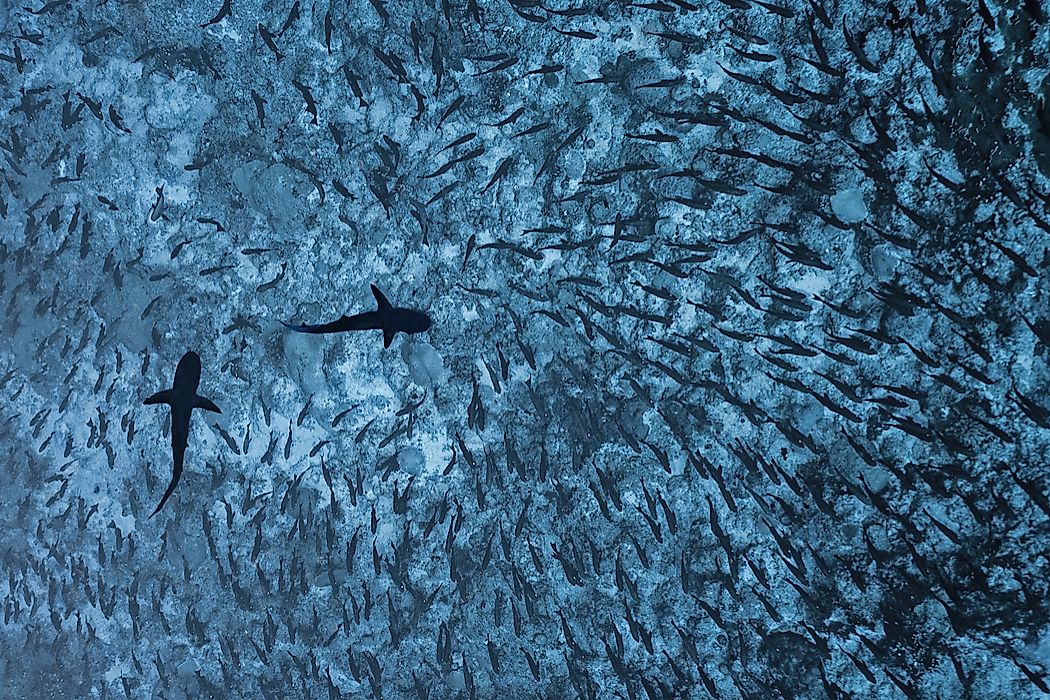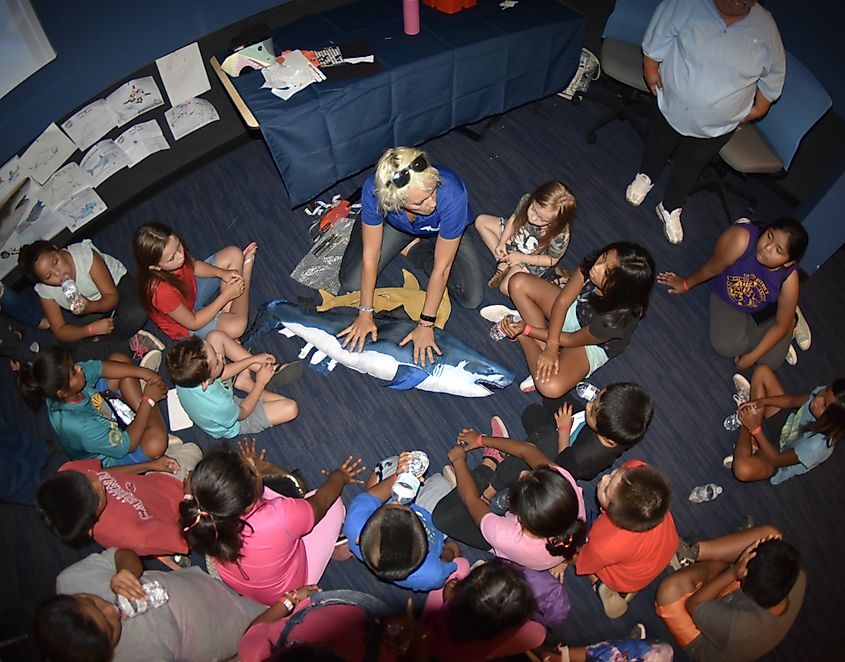We May Fear Sharks, But They Need Our Help

For most people, speaking of sharks paints the picture of a monstrous sea creature with a gaping jaw full of razor-sharp teeth that is always ready to tear apart a human-being. Thriller blockbuster films that exhibit the sharks as man-eaters further perpetuate these beliefs.
Reality, however, paints a different picture. Only around five people are killed by sharks every year - a number that is certainly fewer than the 475,000 humans that humans kill within the same timespan. Furthermore, according to Oceana, humans are responsible for the death of about 100 million sharks from a variety of species each year. From these figures above, it becomes quite clear that sharks have a much greater reason to fear us than vice-versa.
The sharks are, however, not alone in their struggle for survival but have the support of compassionate individuals and organizations who believe that if conservation of sharks is not made a priority, these creatures might soon disappear from the oceans of the world. Sharks4Kids is one such organization that tries to ingrain a feeling of respect for sharks in the young hearts and minds across the world.
Sharks Are Struggling To Survive
Oceana, the world leader in ocean conservation and advocacy, reports some of the top global threats to sharks. These include illegal fishing, demand for shark fins, and bycatch.
According to a 2013 report by Oceana, about 24 countries are catching sharks illegally without reporting such catches to the concerned international authorities. Such illegal fishing is taking place in the Mediterranean Sea and the Atlantic Ocean. Several species of sharks like the blue sharks and the mako are being indiscriminately landed and sold.
Sharks are also dying due to the popular demand for sharkfin soup in some countries, especially in China, where the soup is a popular wedding dish. Although worldwide protests against the consumption of sharkfin soup have triggered some governmental actions in China against this practice, much still needs to be done. To cater to the demands of the shark finning industry, sharks are often caught from the ocean, their fins are cut off, and they are thrown back into the ocean, alive, to drown and die.
Another big threat to sharks is accidental capture during fishing for other types of fish which is known as bycatch. Dusky sharks and scalloped hammerheads are two of the most common species that are caught as bycatch. As per estimates, the dusky shark population has fallen by nearly 85%. Longline fishing techniques are highly detrimental to the survival of sharks as at least 20% of the time, non-target species like sharks are caught.
The Role of Sharks4Kids
Despite the grim scenario, there is still hope left for the sharks. Many organizations are striving to ensure that these top marine predators continue to survive and play their vital role in the marine ecosystem. Sharks4Kids, an organization based in Florida, US, has taken shark conservation initiatives to a new level by educating and inspiring children in different parts of the world to save sharks.
World Atlas managed to catch up with Jillian Morris, the Founder and President of Sharks4Kids, to learn more about the amazing work that is done by Ms. Morris and her team of dedicated shark conservationists.
Speaking of her fascination with sharks, Ms. Morris told World Atlas:
“I saw my first shark while snorkeling at the age of 8, and I was fascinated by these creatures. I wanted to learn more about them, and the more I learned, the more I realized how sharks were misunderstood by the masses. My experiences with sharks were beautiful and very different from what the media was showing me.”
Her awe for these creatures of the ocean inspired her to do something to protect these creatures. As she got older and started studying the sharks, she felt compelled to tell their story. It was out of this that Sharks4Kids was born.
Encouraging Young Minds To Conserve Sharks

Jillian Morris teaching students in the Bahamas about sharks and rays. Photo credit: Duncan Brake.
Sharks4Kids engages in numerous activities that involve students and teachers from schools in different parts of the world to take part in shark conservation. Shark education tours are conducted where representatives of the organization visit schools to give presentations or conduct workshops related to marine species conservation. Sharks4Kids also hosts Skype classrooms where the importance of shark conservation is taught to students at different locations in the world. The Sharks4Kids website provides shark-conservation related downloadable information, curriculum, and ideas for both teachers and students. With the help of such online teaching aids, the team at Sharks4Kids try to make learning about sharks an easily accessible, pleasant and fun experience for the young people.
The team at Sharks4Kids also try to spread the message of shark conservation to the masses by participating and running booths in major festivals, conventions, and events. With the help of fun games and activities, the team tries to attract the attention of the public to the much-feared animals of the oceans, and turn their fear into admiration.
Ms. Morris believes that targeting the young minds is most important if wildlife is to be saved. She feels especially inspired when students create artwork, videos, and blogs to promote shark conservation.
Sharks4Kids has already conducted shark education tours in 12 countries across the world and in 15 states of the US. Also, with the help of online aids like Skype and Google Hangout, the team at Sharks4Kids has also connected with more than 75,000 students in 44 countries.
“People are afraid of sharks and think they should be killed or are not worth protecting. Education is critical to help spread awareness and conservation,” said Ms. Morris.
She added, “Most people do not consider sharks to be cute and cuddly, so it’s harder to push for their conservation. They need more voices and they need champions speaking on their behalf. Their reputation has been impacted negatively by hysteria and movies, but in reality, they are amazing animals and critically important for healthy reefs and oceans.”
For more information, please visit the Sharks4Kids website.
**
Dr. Oishimaya Sen Nag is a freelance writer and editor from Kolkata, India. She loves to participate in wildlife conservation activities and to explore new places and cultures.











